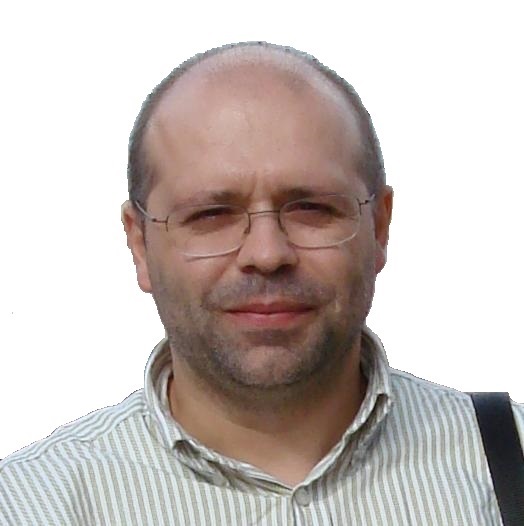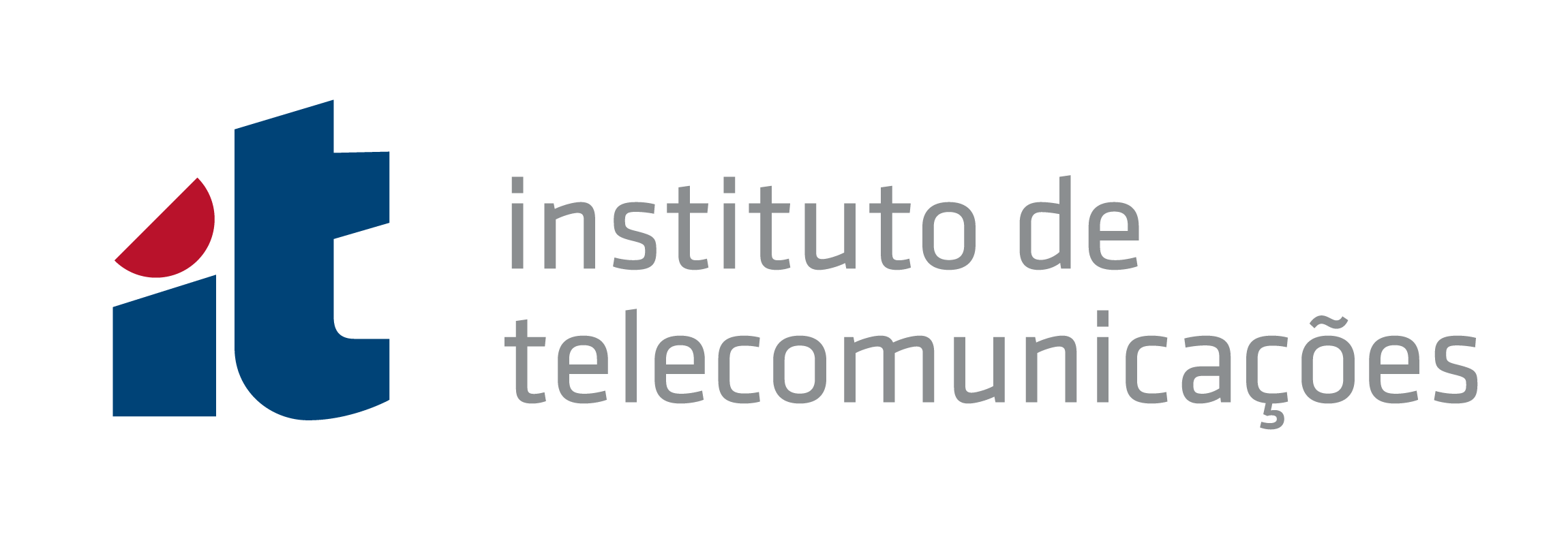 |
 
|
|---|---|
|
Mário M. Freire
|
Supervision of Graduate Student
"You've got to find what you love. And that is as true for your work as it is for your lovers. (...) And the only way to do great work is to love what you do. If you haven't found it yet, keep looking. Don't settle.(...)
Your time is limited, so don't waste it living someone else's life. Don't be trapped by dogma — which is living with the results of other people's thinking. Don't let the noise of others' opinions drown out your own inner voice. And most important, have the courage to follow your heart and intuition. They somehow already know what you truly want to become. Everything else is secondary. (...) Stay Hungry. Stay Foolish."
Steve Jobs (1955-2011), Commencement address at Stanford University, on June 12, 2005.
• I am often looking for motivated and dedicated students willing to perform outstanding research work. Students interested in performing research work under my supervision, within a post-doctoral program, a PhD thesis program, a MS dissertation program, or within a R&D Project, please drop by my office or contact me by email.
• On this page you will find some general information about research under my mentorship. I do my research work mostly within
Multimedia Signal Processing - Covilhã Group at
Instituto de Telecomunicações, a private not-for-profit research institution, Associate Laboratory of the Portuguese Government, of which University of Beira Interior is one of the associated institutions jointly with Instituto Superior Técnico (an institute of the University of Lisbon), University of Aveiro, University of Coimbra, University of Porto, ISCTE-University Institute of Lisbon, Portugal Telecom and Nokia Siemens Networks. This means that Instituto de Telecomunicações will be the host institution for my research students while University of Beira Interior will be the institution that grants the university degree.
• My job as adviser and mentor is to help my students to become full-fledged members of a profession. This is a process that requires commitment, dedication and guidance. Under my supervision, the time of completion for the PhD is between four and five years (including courses in the first year of the PhD program) and the time of completion for the MS dissertation is about one year and one year and half (maximum time is the whole second year of the MS program plus the special term). To find information about students under my supervision, their theses and jobs after graduation, visit my web page of current and former graduate students. We have Lab meetings one day per week, usually at Wednesdays, and by appointment. These Lab meetings are not mandatory, but they are especially important for new students to be aware of unwritten rules and vague aspects of graduate education. Sometimes we have group social events, see a photo of our group Christmas dinner in December 2011. All my students should plan and share their activities with me, having a work plan that includes short-term and long-term goals as well as the timeframe for reaching those goals. At a starting point, I advise my students to read the computer science graduate school survival guide, intended for prospective or novice graduate students by Ronald T. Azuma: So long, and thanks for the Ph.D.!. See also these two parables for graduate students on the adviser perspectives: Rabbit's Ph.D. Thesis and Lion's Watch Repair Business.
• Student behavior should reflect academic integrity standards. Therefore, students must be committed, even in the face of adversity, to the five fundamental values of academic integrity: honesty, trust, fairness, respect, and responsibility. About this issue, students are advised to read:
The Fundamental Values of Academic Integrity by International Center for Academic Integrity.
ACM Code of Ethics and Professional Conduct.
IEEE Code of Ethics.
Regarding plagiarism policies, see Identifying Plagiarism (IEEE);
ACM Plagiarism Policy; Self-plagiarism in Computer Science by Christian Collberg and Stephen Kobourov, in Communications of the ACM 48(4): 88 - 94, 2005.
Double Submissions – Publishing Misconduct or Just Effective Dissemination? by Henning Schulzrinne, in ACM SIGCOMM Computer Communication Review 39(3): 40 - 42, 2009.
How to Have a Bad Career in Research/Academia by David Patterson (University of California, Berkeley).
• Since Portuguese law (Decreto-Lei n.º 115/2013) allows the submission of a PhD thesis as a set of articles, presently, my preferred way for a student organize his/her PhD thesis is the one in which each chapter (which the exception of the first and last chapters) is a research article published in an international journal listed in ISI Science Citation Index. Each thesis should have typically a number of articles between three and five, most of them should be published or accepted for publication at the thesis submission phase and some should reach the A/A+ level in the CORE Ranking of Computing Journals or rank in the first or second quartiles of ISI Journal Citation Reports.
• MS dissertations with a strong research flavour may also be organized in such way that each chapter (which the exception of the first and last chapters) is a research article published in a top-level conference or journal. Each dissertation should have a number of articles between two and three, most of them should be published or accepted for publication at the dissertation submission phase and at least one article should reach the A level in the CORE Ranking of Computing Conferences.
• For theses/dissertations not organized by articles, students shoud read:
How to Organize your Thesis by John W. Chinneck (Carleton University, Canada).
How to Write a Dissertation by Douglas E. Comer (Purdue University).
PhD Thesis Structure and Content by Christopher D. Clack (University College London, UK).
• Guidelines for writing a thesis statement:
How To Write a Thesis Statement (Indiana University).
Writing a Thesis Statement (Cambridge Rindge and Latin School, Cambridge, MA).
Tips and Examples for Writing Thesis Statements (Purdue University).
Thesis and Purpose Statements (University of Wisconsin - Madison).
Guide to Writing Thesis Statements (University of Washington).
Thesis Statements (University of North Carolina at Chapel Hill).
• All my graduated students should read:
Notes on the PhD Degree by Douglas E. Comer (Purdue University).
How to Grade a Dissertation by Barbara Lovitts, in Academe, 18-23, November/December 2005.
An Algorithm for a Good Research Paper, as experienced by Eyal Amir (University of Illinois, Urbana-Champaign).
How to Read a Paper
by S. Keshav, in ACM SIGCOMM Computer Communication Review 37(3): 83- 84, 2007.
Editor’s Note: How to Write Research Articles in Computing and Engineering Disciplines by Ivan Stojmenovic, in IEEE Transactions on Parallel and Distributed Systems 21(2): 145-147, 2010.
Editorial on How to Write Research Articles in Computing and Engineering Disciplines by Ivan Stojmenovic and Veljko Milutinovic.
Writing Technical Articles and
Common Bugs in Writing by Henning Schulzrinne (Columbia University).
Tips for Writing Technical Papers by Jennifer Widom (Stanford University).
How to Construct a Nature Summary Paragraph.
How to Give a Good Research Talk by Simon P. Jones (Microsoft Research, Cambridge). See also: How to Give a Good Research Talk by Simon P. Jones, John Hughes, and John Launchbury, ACM SIGPLAN Notices 28(11): 9-12, 1993.
Oral Presentation Advice by Mark D. Hill (University of Wisconsin-Madison).
• Students should avoid deadline-driven publications with least-publishable material or something incremental. Instead, they should invest in preparing complete and mature contributions that significantly advance the frontiers of the knowledge. See the following Viewpoints:
Stop the Numbers Game: Counting papers slows the rate of scientific progress by David Lorge Parnas (University of Limerick, Ireland).
Predatory Scholarly Publishing by Moshe Y. Vardi (Rice University, USA).
July 2010: Editor's Message: The Relevance of Journals to Computer Science by S. Keshav (University of Waterloo, Canada) in ACM SIGCOMM Computer Communication Review, 40(1): 3-4, 2010.
See also the following discussion about publication culture in Communications of the ACM: Journals for Certification, Conferences for Rapid Dissemination |
Reviewing Peer Review |
The Role of Conference Publications in CS |
Time for Computer Science to Grow Up |
Program Committee Overload in Systems |
Scaling the Academic Publication Process to Internet Scale |
Conferences vs. Journals in Computing Research.
“One of the problems of being a pioneer is you always make mistakes and I never, never want to be a pioneer. It’s always best to come second when you can look at the mistakes the pioneers made”.
Seymour Cray (1925-1996), Public Lecture at Lawrence Livermore Laboratories on the introduction of the CRAY-1, 1976.
Last update: 2013/10/31.